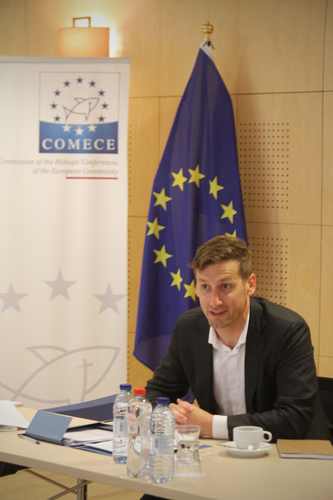COMECE hosted a meeting with NGOs representatives and faith-based actors to discuss the issue of shrinking space for civil society. The participants reflected on how European policy-makers could contribute to fostering civic space.

(Credit: COMECE)
Civil society actors involved in providing basic services in various areas – such as healthcare, education, development, democracy promotion, good governance and the rule of law – shared experiences concerning shrinking space.
It is “a phenomenon that has been gradually intensifying for just over a decade, [with an] increasing trend of government closing down the space for civil society actors, including several EU member states”, states the EU parliament’s report “Shrinking space for civil society: the EU response”.
The International Centre for Not-for-Profit Law records that “120 restrictive laws were adopted in 60 countries between 2012 and 2015”. Travel bans, arbitrary refusals of registrations or restrictions on funding from abroad were mentioned as examples. Many of the international actors are moreover stigmatised as “foreign agents” or falsely accused of performing anti-state and terrorist activities.
The participants highlighted that civil society actors and policy-makers need to work together to counter the phenomenon, by promoting evidence-based research in order to have reliable data and encouraging diplomatic channels, such as human rights dialogues or the local engagement of the respective EU Delegations. Important tools are also trade instruments like the EBA, GSP and GSP+ monitoring schemes.
COMECE welcomes last week’s vote in the European Parliament’s Development Committee on a draft report on addressing shrinking civil society space. The document calls on the EU to step up its diplomatic and material support for civil society actors as well as Churches and religious communities in order to foster civic space.
Media
Photo Gallery
